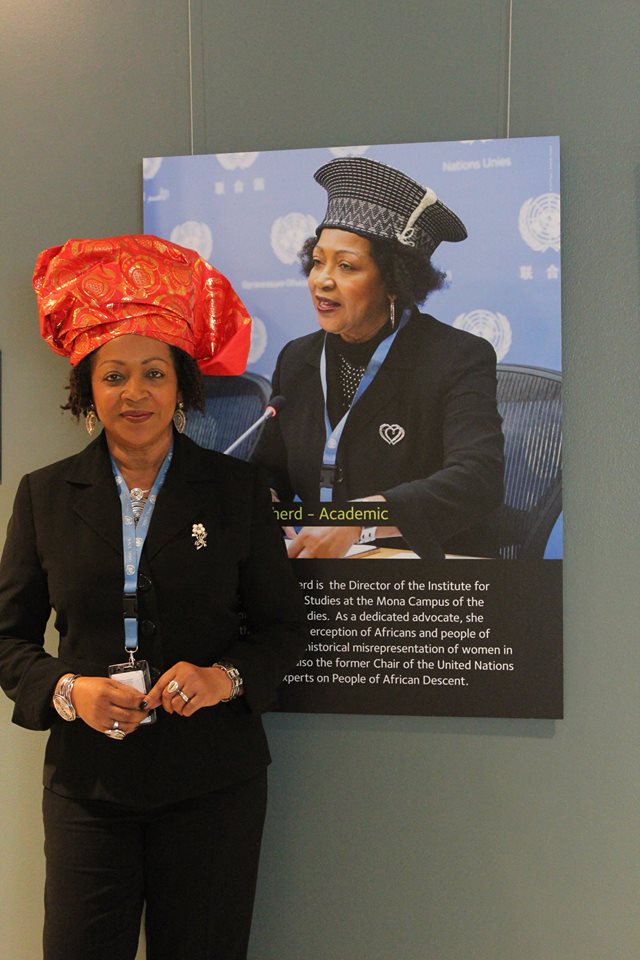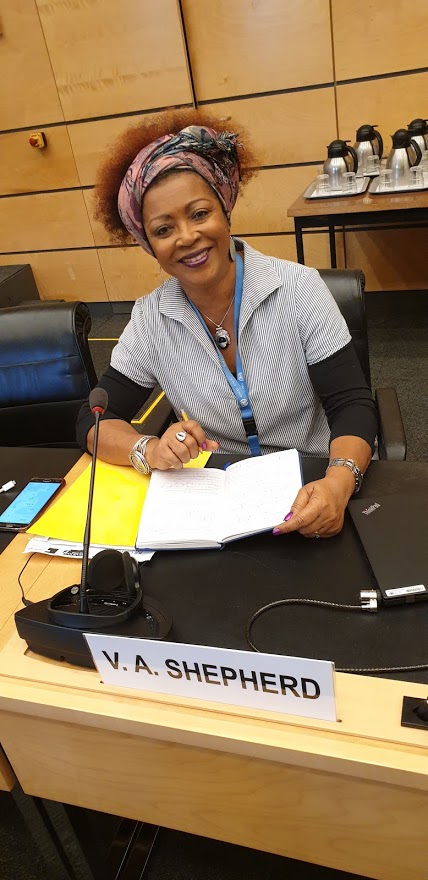UWI Professor led UN Committee on the Elimination of Racial Discrimination to adopt new General Recommendation

Regional Headquarters, Jamaica. Friday, December 4, 2020. — The United Nations International Convention on the Elimination of All Forms of Racial Discrimination (CERD), has adopted General Recommendation 36 (GR36), which aims to prevent and combat racial profiling by law enforcement officials. The document is the result of two years of consultation, and the final drafting and adoption were led by Professor Verene Shepherd of The University of the West Indies (The UWI).
Shepherd, who is a Professor of Social History, and Director of the Centre for Reparation Research at The UWI and former Director of the Institute for Gender & Development Studies (IGDS) inherited the task from former CERD member, Mr. Pastor Murillo.
Racial profiling by law enforcement officials has been a regular complaint of historically marginalised groups, particularly people of African descent, and especially when they are minorities in the countries in which they live. This threat has been brought into sharp focus by the recent Black Lives Matter (BLM) protests that began in the United States, but have spread to countries all over the world. GR36 was adopted on the last day of the 102nd session of CERD on November 24, 2020, which took place virtually due to COVID-19 restrictions. Its recommendations urge States and law enforcement officials to guard against the misuse of digital technology, facial recognition software, and artificial intelligence (AI).


According to Professor Shepherd, “Law enforcement officials often claim that these databases are for use in the prevention and detection of crime, acts of terrorism, immigration violations, etc., but big data and AI tools may reproduce and reinforce already existing biases and lead to even more discriminatory practices.”
The term ‘racial profiling’ is not found in the International Convention on the Elimination of All Forms of Racial Discrimination (ICERD). However, CERD maintains that while the above-mentioned technology may facilitate crime detection and prevention, there is an unacceptable risk that the data collected and the technology implemented can be used for racial profiling and other forms of bias.
In its recommendation, the UN Human Rights Committee expresses concern that vulnerable groups are targeted, including people of African descent, migrants, asylum seekers, Indigenous Peoples, and religious and ethnic minorities. In addition to CERD, several other international human rights mechanisms support the view that these forms of bias are a clear violation of international human rights law.
The recommendations of GR36 fall under seven headings: legislative and policy measures; human rights education and training; recruitment measures; community policing; disaggregated data; accountability; and artificial intelligence.
Specifically, GR36 advocates the thorough investigation of reported incidents of racial profiling in accordance with international human rights standards. If, upon prosecution, perpetrators are convicted, the appropriate sanctions and penalties should be applied, and the victims compensated.
The full General Recommendation can be found online on the CERD’s website.
End.
Notes
Photo Caption
Professor Verene Shepherd was elected to the CERD in 2015, re-elected in 2019 and is the first CARICOM national to serve on this Treaty Body.
About Professor Verene Shepherd
Professor Verene Shepherd continues to make vital contributions to The UWI and, by extension, the people of the Caribbean and its diaspora. After having served as University Director of the Institute for Gender and Development Studies (IGDS), she is currently the Director of the Centre for Reparations Research (CRR).
She has been published widely on subjects relating to Caribbean historical experiences, especially slavery and indentureship, and is a leading authority on historical marginalisation and the region’s quest for reparations. She was elected to the CERD in 2015, and was the first CARICOM national to serve on this Treaty Body. She was re-elected in 2019, polling the highest number of votes among candidates from 13 other countries.
A Note on Racial Profiling
The following elements are common to definitions of racial profiling: a) committed by law enforcement authorities; b) not motivated by objective criteria or reasonable justification; c) based on grounds of race, colour, descent, national or ethnic origin or relevant intersecting grounds such as religion, sex or gender, sexual orientation and gender identity, disability and age, migration status, work or other status; d) used in specific contexts such as immigration control, anti-crime activity, anti-terrorism, or other activity which allegedly violates or may result in the violation of the law.
Racial profiling creates a sense of injustice and humiliation in its victims. There is a loss of trust in law enforcement, secondary victimisation, fear of reprisals and limited access to information about legal rights or assistance. By extension, this may result in reduced reporting of crimes and information for intelligence purposes.
Additionally, the issue negatively impacts on the daily routines of law enforcement members, as well as taking a conscious or unconscious toll on their ability to protect and support members of these communities.





